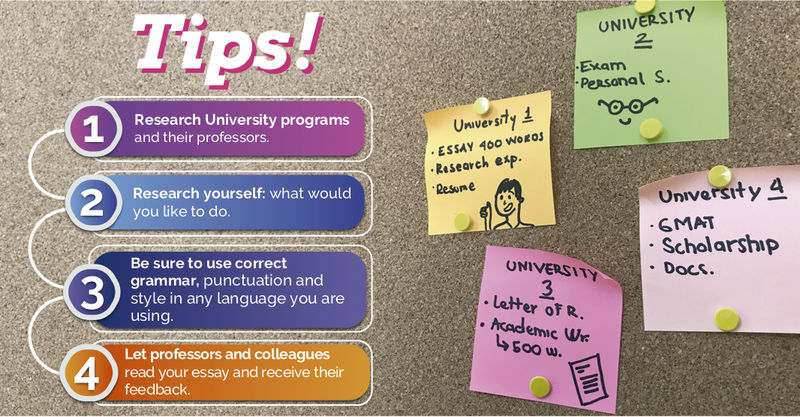How to write a personal statement like a 'pro'
Byline: Carl E. Anderson, professor - Department of Foreign Languages and Cultures
All graduate school applications include metrics, such as transcripts, grade-point averages, and test scores, from the applicant’s previous studies. But most graduate school applicants have strong grades and test scores—and neither grades nor test scores are strong predictors for success in graduate school. This is why most of the applications require a “personal statement”, “statement of purpose” or a “statement of intent”. These short essays are your opportunity to show what makes you not only different, but a good choice for them, their university, and their program.
Universities are looking for an answer to same questions: Is this applicant a highly motivated, well-prepared person with a passion for their topic of study, who can work effectively alone or in groups, is resilient and in the face of adversity, and has a clear sense of why they want to study in this program and this university, as well as what they plan to do in life after they earn their degree?
Accordingly, a successful personal statement essay is not something you can sit down and write in an hour. It benefits from planning, customizing, and drafting and redrafting.
A personal statement essay might be structured in four parts: Firstly, what kind of person are you? Secondly, what do you want to do in graduate school? Thirdly, why do you want to do it, in this particular department or program? Fourthly, what do you plan to do after graduate school?
To answer the first question, present yourself as the kind of person that a graduate program should want to have. Do not simply describe your qualities; show them by presenting brief anecdotes that illustrate the kind of person that you are. Focus on aspects of yourself – personality, skills, research experience – that are relevant to what you would do in your graduate studies. Avoid controversial topics and negativity.

To answer the second and third questions, have some clear ideas about the specific kinds of topics you would study and research in graduate school. Secondly, research the universities and programs to which you plan to apply. Ensure you are familiar with the programs and professors, as well as the specific details of their applications requirements. Finally, be prepared to talk about your future plans. Have a clear idea of the kinds of things that people with graduate degrees in your field might do in their later life and be prepare to present your possible trajectory after you earn your degree.
Throughout your personal statement essay, you should let your personality shine through, but ensure your communication is smart, professional, and concise. The language, style, grammar, spelling, and punctuation must all be immaculate. You should tune your essays for each department or program to which you apply, you should draft and re-draft your essays, you should ensure that your colleagues (and, ideally, professors) also read them and offer constructive feedback.
You will, of course, write much, much more during a graduate school career, but these brief “personal statement” types of essay that you must write during the application process may be the most important part of getting you to graduate school.

